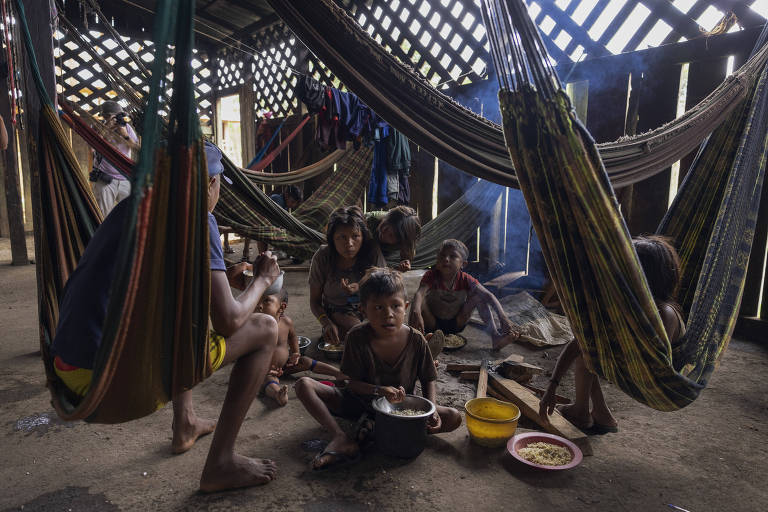The reactivation of illegal mining fuels the humanitarian crisis among the Yanomamis, impacting access to food and leading to successive malaria outbreaks in the territory. The malnutrition of Yanomami children is as visible as the exploitation of gold, and they are directly proportional.
Auaris is currently one of the main health crisis hotspots. Access to communities is through two-hour flights, making it difficult for assistance and evacuations; mining is spreading in the region without repression by regulatory agencies, security forces, and the military; there is cooptation of adult indigenous people, impacting crop production. It is common for children to be malnourished and with malaria at the same time, in addition to a high incidence of opportunistic hunger-related diseases: pneumonia, diarrhea, anemia, and parasitic infections.
"Mining has come back strongly, and with that, malaria has come back strongly," says gynecologist Ana Paula Pina, who works at the Yanomami Special Indigenous Health District (DSEI). "There are chronically malnourished mothers.
And the majority of hospitalizations are of malnourished children with malaria." Mining alerts indicate an 80% reduction throughout the year, but satellite images may conceal invaders returning to previously open areas. According to enforcement agents, this has been happening. These agents estimate that about 3,000 invaders remain in the indigenous land, almost a year after the start of eviction actions—removal of non-indigenous people. There were about 20,000 at the height of the crisis, encouraged by the government of Jair Bolsonaro (PL).
